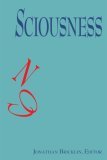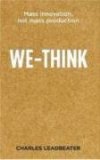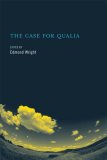on ‘Sciousness’: nondualism and William James
June 30, 2008
Sciousness, ed. by Jonathan Bricklin (Eirini Press, 2007), collects several essays and shorter passages by (or about) William James dealing with the concept of ‘sciousness’ or ‘pure experience,’ along with an essay by Bricklin titled “Sciousness and Con-sciousness: William James and the Prime Reality of Non-Dual Experience.” The book opens with the Zen work Hsin-Hsin-Ming (“On Believing in Mind”), introducing the Eastern expression of nondualism, while Bricklin’s essay brings Eastern thought to bear on James’s views.
William James coined the term ‘sciousness‘ to refer to experience before it is separated into subject and object. However, in the essays collected in this book, James doesn’t commonly use the term ‘sciousness’ but most often just speaks of ‘experience’ or ‘pure experience.’ James holds that an experience, often using a room or a building as an example, becomes mental or physical only by the relations it forms with other experiences:
In so far as experiences are prolonged in time, enter into relations of physical influence — breaking, warming, illuminating, etc., each other — we make of them a group apart which we call the physical world. On the other hand, in so far as they are fleeting, physically inert, with a succession which does not follow a determined order, but seems rather to obey emotional vagaries, we make of them another group which we call the psychical world. …
The two kinds of groups are made up of experiences, but the relations of the experiences among themselves differ from one group to the other. It is, therefore, by addition of other phenomena that a given phenomenon becomes conscious or known, and not by a splitting in two of an interior essence. (The Notion of Consciousness, p. 107-108)
In one of my favorite parts of Bricklin’s essay, he takes Basho’s famous poem
Old pond
Frog jumps in
Sound of the water
and rewrites it to show the effect of ordinary consciousness reacting to the bare succession of experiences:
Old pond!
Feels peaceful
What’s that?!
Wow, a frog!
There goes the silence! (p. 55)
Sciousness will appeal most to readers already interested in non-dual philosophy, who can now find a spiritual ancestor in William James, or to those interested in James’s philosophy, who may discover a new aspect of his thought.
Many of James’s essays can be found online:
The Notion of Consciousness is newly translated from the French by Jonathan Bricklin; this translation by Carl Manchester is available online.
Does ‘Consciousness’ Exist?
See also: review by Jerry Katz at Nonduality Blog







